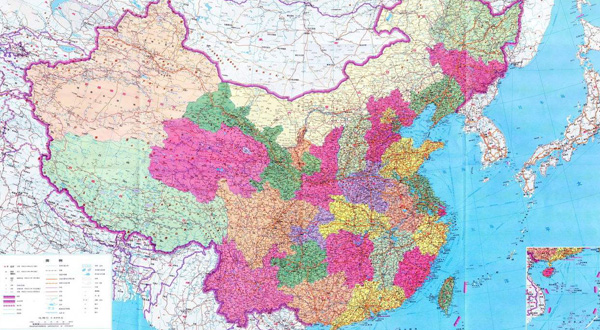Now - 17:18:25
Chief officers in Russia: titles, titles. Who are the "children of the chief officers"?
Ober-officer, staff officer – is the division into grades of officers in the Russian army until 1917. The last of them was above – from major to Colonel. A chief officer-a Junior officer – from ensign to captain. The concept of “Junior” in our case should be distinguished from the term "noncommissioned officer" - the transitional rank between officers and soldiers, which gave the most distinguished soldiers, who had no noble title.
An Analogy can be made with a modern army: for the rank of officer you must have higher military education, so there are “transitional” rank, Sergeant and non-commissioned officers. Go directly to the ranks of chief officers.

Ensign
Non-commissioned officers – Ober-officers, worn on the pursuit of a single asterisk (in some embodiments, none) – this is the lowest rank in the officer career path. In the artillery of this title did not exist - it matched a bayonet-cadet. So, ensign is one of the main characters in "Bela" M. Y. Lermontov, Pechorin.

Second Lieutenant, cornet and cornet
Ober-officers could also have the rank of second lieutenants. In uniform they could see two stars. Cornet and cornet in the cavalry, too, was equal to the rank of second Lieutenant. The first title was found only among the Cossacks, the second – other cavalry arms. In the Navy this rank corresponded to the Midshipman.
You Need to understand that the army and Navy all the time there were military reforms. The chief officers also were involved. Since 1884 the rank of ensign was abolished, and the first Junior officer rank became Lieutenant and a cornet.
Recommended
"Knowledge is light and ignorance is darkness": the value, meaning and alternatives
There are some sayings that would seem to need no explanation, such as “teaching & ndash; light and ignorance – darkness”. But some still do not understand their meaning. But not only for such people is written by our article. I...
What was invented by Mendeleev for the army. The history and fate of the invention
D. I. Mendeleev was a brilliant Russian scientist-polymath, who made many important discoveries in various fields of science and technology. Many people know that he is the author of “Fundamentals of chemistry" and the periodic law of chem...
The origin of the Slavs. The influence of different cultures
Slavs (under this name), according to some researchers, appeared in the story only in 6 century ad. However, the language of nationality bears the archaic features of the Indo-European community. This, in turn, suggests that the origin of the Slavs h...

Lieutenant
The Chief officers received the title of Lieutenant. In the Cossack troops they meet the centurion. Lieutenant wore a uniform with three stars on each. By the way, this title is often found in different characters in the Russian classical literature. And there is an explanation: Lieutenant – young adults, but not youths. Now they are making a “adult” mistakes and miscalculations. Among them are lose in the cards, heroes and cowards. Lieutenant corresponds to the rank of Lieutenant in the modern Russian army.

Captain
In the cavalry the rank of captain consistent with the rank of Lieutenant-captain, the Cossacks – captain. They wore a uniform with four stars on each. Let us remember again the work of M. Y. Lermontov «Hero of our time”. There's this rank wore the simple and good Maxim Maximovich.
Captain
The Captain – senior chief officer rank. In the cavalry he was captain sootvetstvoval, and the Cossacks – captain. The captain commanded a company or battery, the captain – a squadron.
Leib-Grenadier regiment
A Special honor in the Russian army, enjoyed the chief officer of the life Grenadier regiment. Those who bore this title has always been the focus in any conversation.
The Life-Grenadier regiment – the elite of the tsarist Russian army. Its name he received from a hand grenade with the wick – Grenada. The first grenadiers – it is the soldiers who are metal grenades. It was necessary as quickly as possible to get close to the enemy. Obviously, the grenadiers suffered the greatest loss in battle. They always made exceptions in the Charter, and the recruitment of personnel.
In 1756, in Riga, was formed the first Grenadier regiment, by decree of Empress Elizabeth. Prior to that, the Grenadier company was auxiliary in infantry regiments. The first Grenadier regiment heroically showed themselves at the battle of Kunersdorf during the Seven years war. It was his attack decided the outcome of the battle. In 1760, the unit took the surroundings of Berlin. The regiment was distinguished for bravery in the Russo-Turkish war, and in 1775 he was promoted to – Leib-Grenadier regiment. To serve him was an honor, and when the acquisition has a strict selection of candidates.

Nobility as a factor of recruitment officers
We must Not forget that the officers in Russia before the revolution – this is not only a military post, but a social title. Before the revolution he was considered synonymous with the concept of “gentleman”, as it is of the nobility, who considered it their duty serving the Fatherland, was completed officers. For this state, and gave them privileges. Only military officer's service was considered honorable among the privileged class.
Not coincidentally, the Bolsheviks during the revolution in a negative way use the term “officer”, stressing their class affiliation. While reform of the Soviet army during the great Patriotic war, a Soviet combat division commanders and corps commanders who fought in the Civil war for the Red army, massively wrote official reports on dismissal. They said that the concept of “officer” is perceived in their minds as “enemy”, “gentleman”, so they can't wear the title of «Soviet officers".
Then the rationale for the introduction of an innovation was this: the Germans were not threatening to the Soviet regime and Homeland, so it was necessary to forget the ideological and political differences and defend the interests of Russia. The reform created a spirit of continuity with the tsarist military victories. Before that, it was forbidden any mention of the glorious victories of Russian generals in the pre-revolutionary period.
“Children of chief officers”
Even Peter the Great understood that the rigid caste system in Russia had a negative impact on the development of the state: almost the entire population was in a state of apathy, indifference. The nobles knew that in any case they will move up the career ladder. Others, on the contrary, understood that under no circumstances it is impossible "over your head”. The great reformer has violated this centuries-old tradition: in the table of ranks appeared ranks, which could be promoted all classes.
Revolutionary was the fact that upon reaching this rank the person acquired the title of nobleman. His future children also had a right to that title. In fact, there was a revolution, which abolished the rigid caste system in our country. However, those children who were born until their father needs to rank, were assigned a special status – “the sons (children) chief officers”.
So, we explain in more detail what is in this case the nobility. As the son of the chief officer was able to obtain the preferred title? Only personal contributions. For all other introduced a special exempt class, which was above their initial position, but below the nobility. Later, in 1832, “children of chief officers" special status "senior citizens”.
...Article in other languages:

Alin Trodden - author of the article, editor
"Hi, I'm Alin Trodden. I write texts, read books, and look for impressions. And I'm not bad at telling you about it. I am always happy to participate in interesting projects."
Related News
Forgotten words from the dictionary Dahl - examples, history and interesting facts
Linguists and literary critics associated the Russian language with a real living organism in which constantly undergoing various changes. The vocabulary of the language is constantly changing, for almost ten centuries of its exis...
Industrial design - what is it? Types
There is a field of artistic and technical activities, the purpose of which is to define the formal characteristics of industrial products – industrial design. This sector plays an important role in the structure of global m...
What distinguishes the Institute from the University: benefits if you choose the latter
In Russia there is a Federal law, after reading that it becomes clear what distinguishes the Institute from the University. And despite this, few people understand the difference between the main types of higher education institut...
Africa: history of a continent
Africa, whose history is full of mysteries mysteries in the distant past and the bloody political events in the present – it is a continent called the cradle of mankind. The huge continent is one-fifth of the total land area...
throughout history people think of as a man. The answer is still no. There are only theories, each of which has its advantages, but at the same time significant drawbacks. the Most ancient of them is theological. This theory is ba...
Diffusion – it is (literally) spreading, spreading, spreading. Physically, this term describes the process of transfer of energy or matter from highly concentrated area to an area with lower concentration. The most common ph...






















Comments (0)
This article has no comment, be the first!